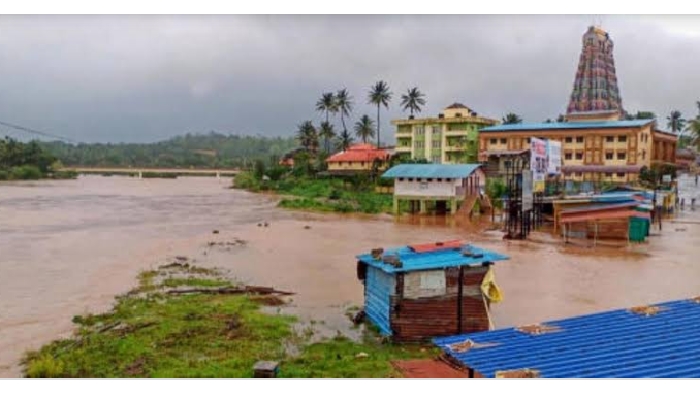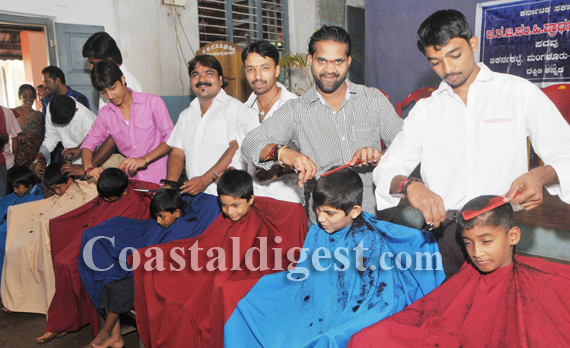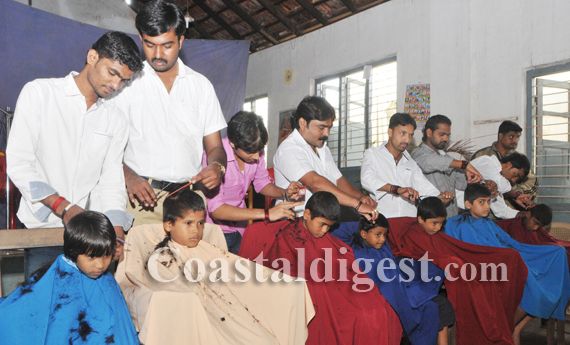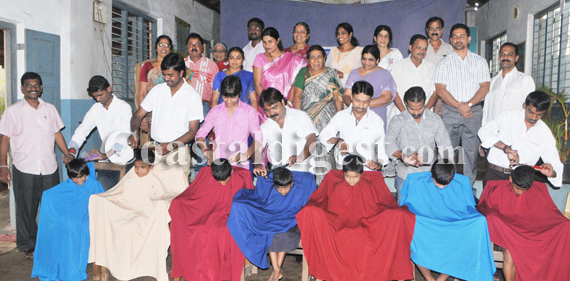
Bengaluru, Aug 9: Swollen rivers and flood-like situation continue to threaten lives and property in several parts of Karnataka that have been ravaged by torrential rains over the last few days.
Though there has been a respite from the downpour in some parts, rivers continue to flow above the danger mark, inundating low lying areas in several parts of Malnad, coastal and interior Karnataka.
There are also reports of continued landslides in hilly areas of Kodagu and Chikkamagaluru.
In Dakshina Kannada, heavy rains have submerged several areas in Bantwala and Belthangady, among others, with the Netravati river overflowing and also water being released from nearby dams.
Officials said incessant rains in Cauvery river catchment areas have led to increased inflow in the Krishna Raja Sagara dam in Mandya district. Water is being released from it and people living in low lying areas have been warned, they said.
There is also a flood-like situation in Najanagudu and nearby areas of Mysuru as the swollen Kapila river has inundated roads connecting Ooty in neighbouring Tamil Nadu, with water being released from Kabini dam.
There has been some respite from heavy rains in certain parts of Kodagu, which has been ravaged by floods and landslides. However, several areas of the district continue to be in deluge with the Cauvery and Lakshmana Tirtha rivers overflowing due to rains in the hilly areas.
There are also reports of landslides in some parts of the district.
Meanwhile, continuing rains are hampering the search operation by NDRF and authorities to locate five people, including the priest at Talacauvery, the origin of the river Cauvery, who had gone missing due to massive landslides at Bramhagiri hills on Wednesday night.
There are also reports of landslides at a few places in Charmadi ghat region of Chikkamagaluru and the road connecting to Dakshina Kannada has been closed temporarily.
Though Belagavi district has had some respite from the heavy rains, flood like situation continues to persist as the Krishna river and its tributaries are swollen due to continued inflows because of rains in neighbouring Maharashtra.
Inflow has also increased to the Tungabhadra dam of Ballari district due to rains in the catchment areas of Shivamogga and Chikkamagaluru.
Authorities have alerted people living in low lying areas about opening dam gates to release water anytime with rising inflow.
There is a similar flood like situation in parts of Yadgir, Raichur and Bagalkote districts with water being released from various dams.
The state government has released ₹ 50 crore for emergency relief and has announced ₹ 10,000 as immediate relief each to affected families.
An amount of ₹ 5 lakh has been announced for completely damaged houses, while in the case of partially damaged ones, relief will be distributed considering the extent of damage.









Comments
Simply desire to say your article is as surprising.
The clarity in your post is simply great and
i can assume you're an expert on this subject.
Well with your permission allow me to grab your feed to keep updated with
forthcoming post. Thanks a million and please
continue the enjoyable work.
Feel free to surf to my homepage psychics: http://Giadinhnazarethvietnam.com/video/profile.php?u=FCKBell727
This is my first time visit at here and i am actually impressed to read everthing at single place.
My website: Psychics feedback: http://05.gd/psychic_ratings_949884
Awesome post.
Also visit my website ... http://jkt.Dom.web.id/index.php?a=member&m=1168477: http://jkt.Dom.web.id/index.php?a=member&m=1168477
I was curious if you ever considered changing the structure of your
website? Its very well written; I love what youve got to say.
But maybe you could a little more in the way of content so people could connect
with it better. Youve got an awful lot of text for only having 1 or 2
images. Maybe you could space it out better?
my web-site - psychics: http://Www.isuruvimana.net/profile.php?u=YaniraMarti
I am extremely impressed with your writing skills as well as with the layout on your
weblog. Is this a paid theme or did you customize it yourself?
Either way keep up the excellent quality writing, it
is rare to see a great blog like this one these days.
my blog; psychic ratings: http://www.Partypillsforum.com/index.php?a=member&m=2808217
Hi there, yup this paragraph is truly good and I have learned
lot of things from it about blogging. thanks.
Look at my homepage :: psychic
readings: http://partypillsforum.com/index.php?a=member&m=2792996
Nice post. I learn something new and challenging on blogs I stumbleupon on a daily basis.
It's always interesting to read content from other writers and
practice something from other sites.
Review my blog post ... http://www.Foundationkey.com/Index.php?do=/blog/220852/what-will-i-get-…: http://www.Foundationkey.com/index.php?do=/blog/220852/what-will-i-get-…
Howdy just wanted to give you a brief heads up and let you know a few of the images
aren't loading correctly. I'm not sure why but I think its a
linking issue. I've tried it in two different internet browsers
and both show the same results.
Review my blog ... Psychic Reviews: http://chicagorehab.net/userinfo.php?uid=2839729
I seriously love your blog.. Great colors & theme. Did you develop this site yourself?
Please reply back as I'm trying to create my very own website
and would like to learn where you got this from or just
what the theme is named. Many thanks!
Feel free to surf to my site :: Psychics Feedback: http://Shorl.com/drirustavestyna
Hi there friends, how is all, and what you want to say concerning this piece of writing, in my view its in fact remarkable for me.
my web page; Psychics Directory: http://Chicagorehab.net/userinfo.php?uid=2906161
Add new comment